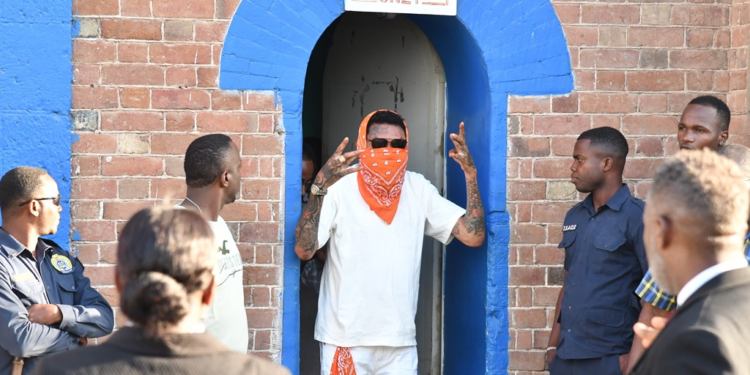Vybz Kartel, born Adidja Palmer in Kingston, Jamaica, emerged as a central figure in the dancehall and reggae music scenes, renowned for his distinctive style and controversial lyrics.
Born on January 7, 1976, Kartel’s early life was marked by a passion for music, influenced heavily by the vibrant Jamaican music culture. His career took off in the early 2000s with a string of hit singles that showcased his unique lyrical prowess and raw charisma.
Tracks like “Romping Shop” and “Clarks” became anthems, solidifying his status as a dancehall icon known for pushing boundaries with provocative themes and bold expressions of Jamaican street life.
Beyond his musical success, Vybz Kartel’s life was often marred by legal troubles.
Read This Also: Jamaican Dancehall artiste, Vybz Kartel released from prison after 13 years

In 2011, he was arrested and charged with murder, leading to a highly publicized trial that culminated in his conviction in 2014.
Despite his imprisonment, Kartel’s influence on dancehall music remains profound.
His lyrical innovation and ability to blend traditional dancehall rhythms with contemporary influences left an indelible mark on the genre.
His music continues to resonate with fans worldwide, reflecting both the complexities of Jamaican society and the enduring appeal of his artistic vision.

Vybz Kartel’s career represents a complex intersection of talent, controversy, and legal challenges. While his incarceration has undoubtedly altered his public presence, his impact on dancehall music endures.
His story serves as a reminder of the power of music to transcend boundaries and ignite cultural conversations, even amidst personal and legal turmoil.
As fans await his eventual release, Vybz Kartel’s legacy remains a testament to the indomitable spirit of Jamaican music and its ability to resonate globally.



























